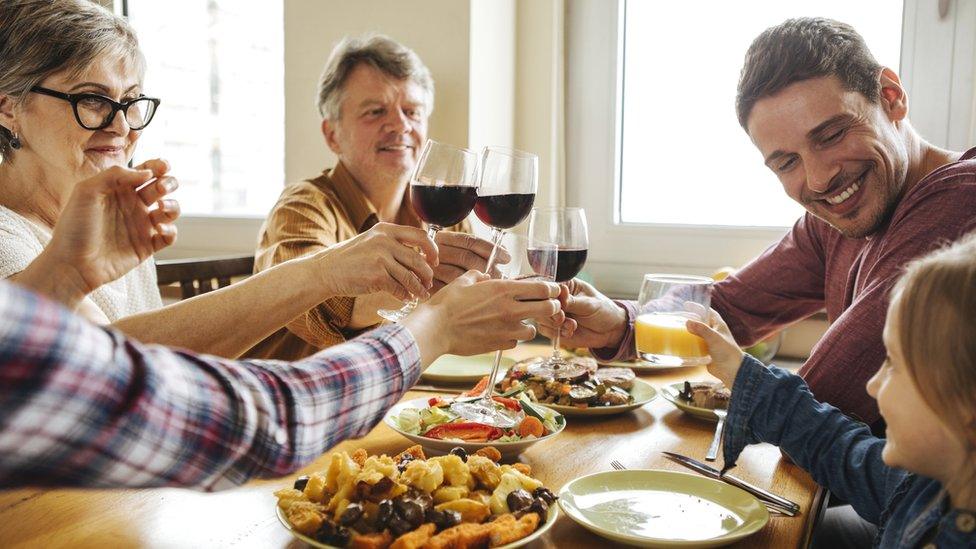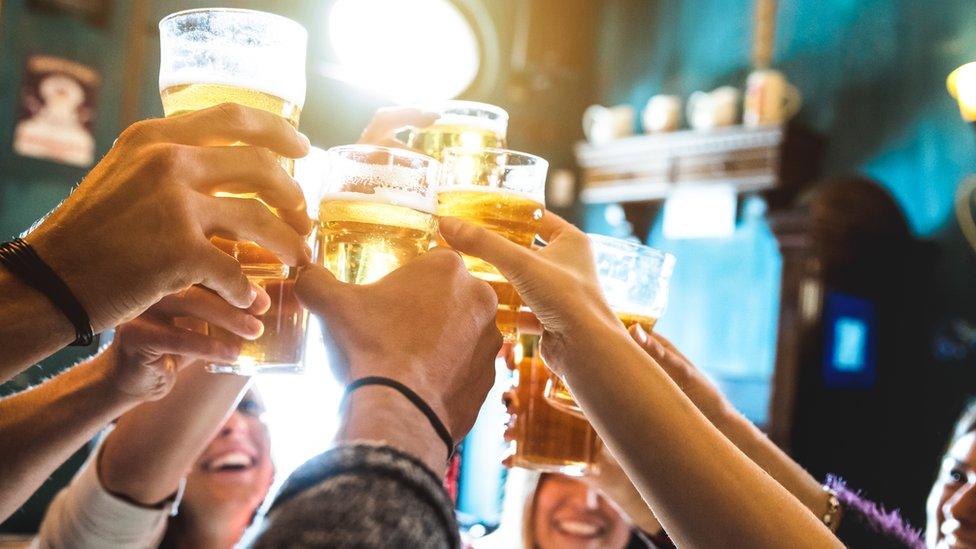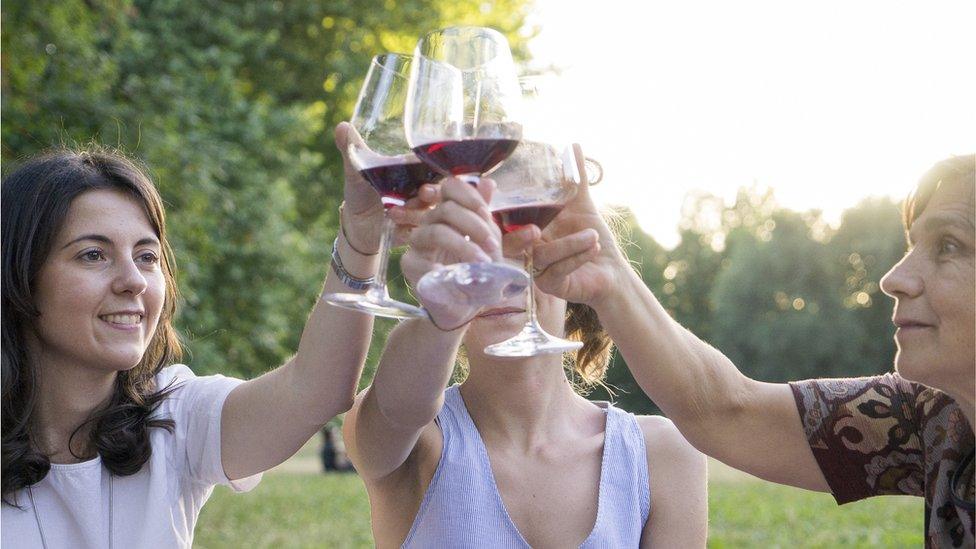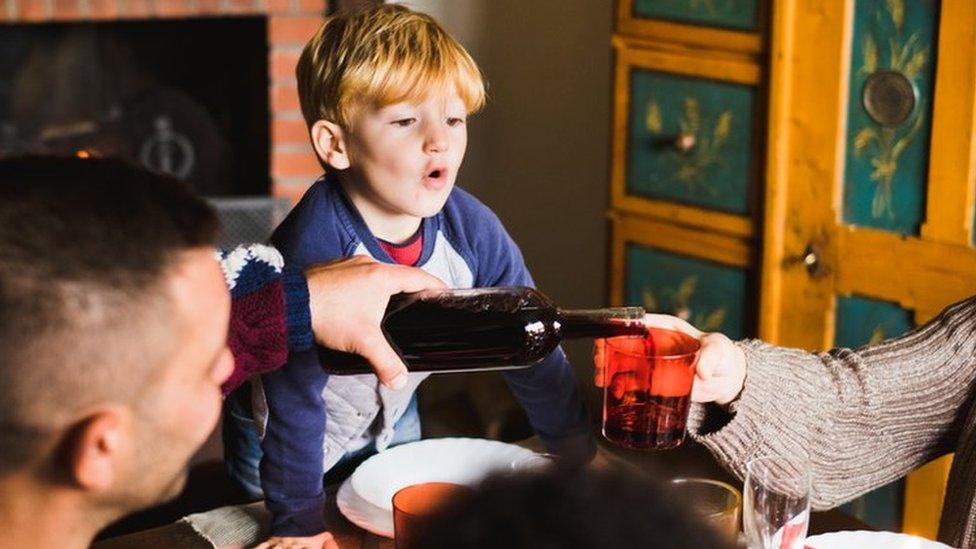Are parents prepared for holiday hangovers?
- Published
- comments

With the festive season upon us, many parents are bound to find themselves drinking more than normal, be it at the pub or at any of the various Christmas parties.
For those with young children, this may involve calling on the help of a kindly grandparent or a local babysitter for some childcare.
But how many parents think about how they will look after young children the following day, when the inevitable hangover kicks in?
A US report has found that a quarter of parents were not likely to think about whether they'll be able to take care of their child the day after drinking at a special occasion - and don't limit their alcohol intake.
The survey of 1,170 parents with children aged 0 to nine also found that one in 12 parents admitted they may have been too impaired to carry out their parenting responsibilities in the past.
Sarah Clark, an associate research scientist at the University of Michigan Medical School, which carried out the research, said: "A parent passed out on the couch will not be effective in recognising and reacting to the everyday safety risks that occur with children."
'It affects you differently'
One reason some parents fail to plan for the day after a boozy night, is they may not be in the habit of nights out where they drink a lot, says Ms Clark.
This lack of drinking "practice" means they're likely to have a reduced tolerance for alcohol, a part of which is also caused by getting older, she says.
As a result, parents may underestimate how badly they're likely to feel and what a struggle it can be looking after young children when hungover.
"Some of it is you don't always recognise that you might hit a stage in your life where it affects you differently," Ms Clark says.


What causes a hangover?
Splitting headaches, sickness and dizziness - we all know the symptoms that can come from having a few too many.
Hangovers vary from person to person and there are many factors that affect how bad they are, such as how much we drink.
Scientists do not fully understand what causes a hangover, but one of the culprits is thought to be ethanol - a toxic chemical which works in the body as a diuretic, causing you to pee more and become dehydrated.
Once you have a hangover, there's no magic cure, although rehydrating, painkillers like paracetamol and ibuprofen and sugary foods are some of the things that may ease your discomfort.
But there are steps you can take to reduce the chance of getting a hangover in the first place.
These include:
Not drinking on an empty stomach
Not drinking dark-coloured drinks if you've found you're sensitive to them (they contain chemicals that irritate blood vessels and tissue in the brain and can make a hangover worse)
Drinking water or non-fizzy soft drinks in between each alcoholic drink
Drinking a pint or so of water before you go to sleep
Source: NHS website, external
Alcohol can also remain in the system the day after a heavy night of drinking.
Generally, the body takes about three hours to break down the alcohol in a glass of wine and two hours for a pint of beer.
It means that, depending on how much you've drunk, you could still be over the legal alcohol limit for driving the day after drinking.

So what should parents do?
In some cases parents should make childcare arrangements for the day after a big night of drinking, says Ms Clark.
But all parents should at least think about whether or not they need to make plans, she said.
"Every day if you look at the news you can see situations where nobody meant for harm to occur but it did," Ms Clark said.
"Don't leave it to chance. You don't want to be the family in that news story."
- Published18 October 2017

- Published15 December 2017
